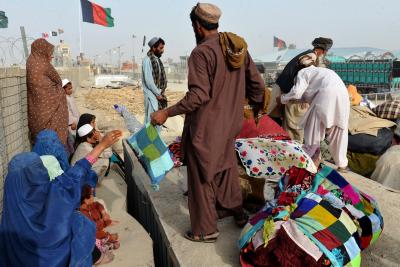Kabul, July 8: Afghanistan has once again raised concerns over the treatment of Afghan detainees and refugees in Pakistan, calling for urgent redressal and streamlined visa processes, especially for Afghan patients and business travelers.
These issues were prominently discussed during the inaugural session of the Political Consultative Mechanism between the Foreign Ministries of Afghanistan and Pakistan, held in Islamabad. The Afghan delegation was led by Mufti Noor Ahmad Noor, Director General of the First Political Division at Afghanistan’s Ministry of Foreign Affairs. Pakistan was represented by Syed Ali Asad Gillani, Additional Secretary for Afghanistan and West Asia.
The meeting followed the commitments made during Pakistani Deputy Prime Minister and Foreign Minister Ishaq Dar’s visit to Kabul on April 19. Both nations reaffirmed their resolve to enhance engagement, strengthen bilateral ties, and promote regional security and development.
A major point of discussion was the repatriation of Afghan nationals and improving the legal movement of people across borders. The Pakistani side shared that over 500,000 visas had been issued to Afghan citizens since January 2024, covering categories such as medical, business, tourism, and education. Both sides agreed to work jointly to improve cross-border mobility and documentation.
The two delegations also discussed counterterrorism measures. The Pakistani officials urged the Afghan side to take concrete steps against terrorist groups allegedly operating from Afghan soil, emphasizing that such threats undermine both Pakistan’s security and broader regional stability.
Afghanistan, meanwhile, reiterated the importance of addressing the humanitarian concerns of Afghan refugees and detainees residing in Pakistan and emphasized the need for humane treatment and swift resolution of their cases.
The talks mark a step toward fostering deeper cooperation amid complex bilateral and regional challenges. Both countries pledged continued dialogue under the Political Consultative Mechanism framework.












